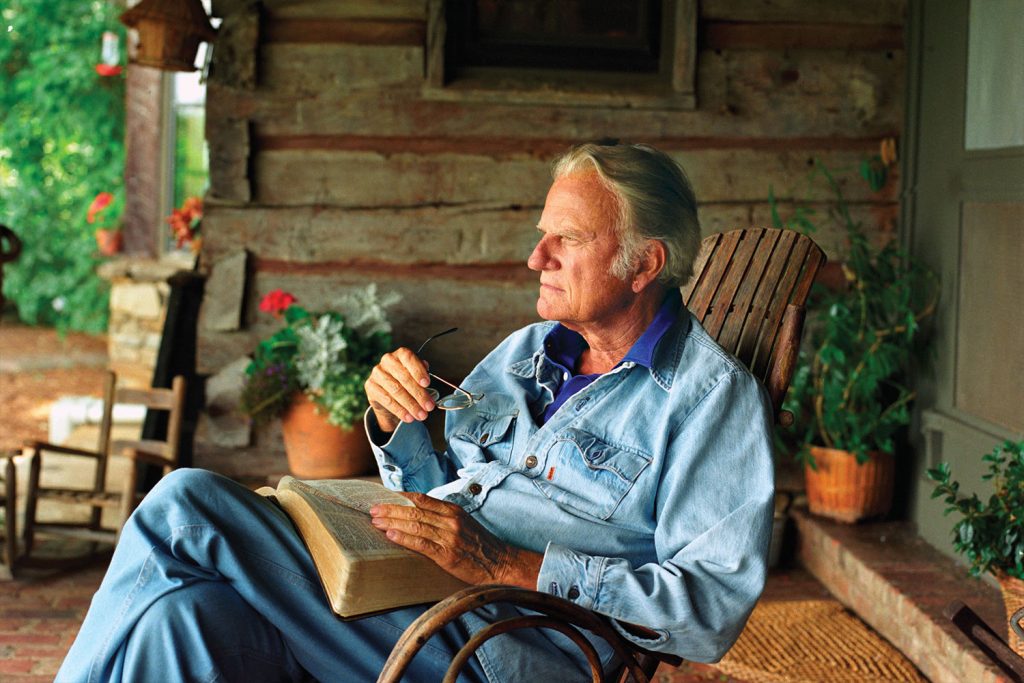
A talk show interviewer once asked the late Billy Graham, “Do you drink alcoholic beverages?”
“No, I don’t,” came the reply.
We can forgive the interviewer for thinking at this point, This is going to be fun. He asked, “Then I suppose you think alcohol is evil?”
“Not at all,” said Billy. “The fact of the matter is that I have chosen not to drink because of the pressure it would put on those who do think alcohol is wrong.”
Graham went on: “If they ever saw me taking a drink it would compromise my ability to speak to them on God’s behalf, and it might lead them to do something that would violate their own consciences.” He willingly said No in order to speak a greater Yes. He curtailed his own freedom as a way of serving those who looked to him as a spiritual guide.
You don’t have to be a celebrated evangelist to exert such influence on others. Most of us would be shocked to discover how often other people are looking to us for inspiration, guidance, and reassurance.
Think of a place where your freedom is on a collision course with someone else’s wellbeing.
Your workplace may be in the middle of a time-consuming, soul-crushing assignment. Tackling it is not negotiable. But whining about it is. Our sighs and complaints may end up communicating: “If she feels that bitter and puts it out there in front of everyone, I guess I can do that, too.”
In our culture we can choose the cars we drive, the clothes we wear, and the attitudes we display. But such choices are never neutral. They can have a telling effect on those around us.
In their groundbreaking 1985 study, Habits of the Heart: Individualism and Commitment in American Life, Robert Bellah and his colleagues suggested that “for Americans…freedom was perhaps the most important value.”
That sounds like something worth celebrating on July 4th and every other day of the year. But Bellah was concerned that personal freedom was becoming a kind of runaway locomotive, crushing everything in its path. No one is going to take away my freedom. In the prefaces to both the 1996 and 2008 updated editions of his book, Bellah wrote that personal freedom was continuing to erode commitment to the common good at an accelerating pace.
Banks, car companies, and retailers all advertise that your life should be lived with “no boundaries” (which will best happen, apparently, if you immediately purchase their products or services).
But for communities to thrive, there simply have to be boundaries on personal freedom.
You’re not free to yell “Fire!” in a crowded theater. You’re not free to drive on the left side of the road just because you liked doing that on your vacation in England. You’re not free to post threats on social media against public officials just because you want to get their attention.
Freedom, of course, is at the heart of America’s current cultural divide over vaccination mandates. People are fearful and angry that the Powers That Be seem to be compromising the very liberty that prior generations fought so hard to achieve. Should they push back?
The New Testament, as it so often does, flips the script.
God has given us remarkable freedom. Those who trust Christ receive freedom from something – freedom from paying the penalty for our own sins and screw-ups – so that we might experience freedom for something. Freedom is a gift we use not to suit ourselves, but to take care of others.
The apostle Paul said it brilliantly:
“It is absolutely clear that God has called you to a free life. Just make sure that you don’t use this freedom as an excuse to do whatever you want to do and destroy your freedom. Rather, use your freedom to serve one another in love; that’s how freedom grows. For everything we know about God’s Word is summed up in a single sentence: Love others as you love yourself. That’s an act of true freedom. If you bite and ravage each other, watch out—in no time at all you will be annihilating each other, and where will your precious freedom be then?” (Galatians 5:13-15, “The Message”)
Every decision, in the end, must take into account this crucial consideration:
How can I use the freedom God has given me to serve the common good?
To which Billy Graham would no doubt have held up a glass of sweet tea and said, “I’ll drink to that.”
